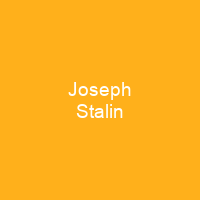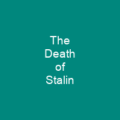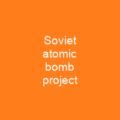Joseph Stalin: The Man Who Shaped the Twentieth Century
Imagine a world where one man’s decisions could shape history itself. That was Joseph Vissarionovich Stalin, the Soviet politician and revolutionary who led the Soviet Union from 1924 until his death in 1953. Born into poverty as an ethnic Georgian named Ioseb Besarionis dze Jughashvili, Stalin’s journey to power was marked by a relentless drive for control and a vision of a socialist utopia. His rise to the pinnacle of Soviet leadership came with a heavy price: millions died under his rule.
Early Life and Rise to Power
Stalin’s early life was one of hardship and struggle. Born in 1878, he lost both parents by the age of four, leaving him to survive as an orphan. His father’s shoemaking business declined, pushing his family into poverty. Despite these challenges, Stalin excelled academically, though health issues plagued him throughout his life, including smallpox and a left arm injury that affected his writing hand.
His intellectual curiosity led him to Marxism, where he found a path to change the world. In 1894, he enrolled as a trainee priest but soon became disillusioned with religion and embraced Marxist philosophy instead. He joined the Russian Social Democratic Labour Party in 1901, quickly rising through the ranks due to his oratory skills and organizational abilities.
The Bolshevik Revolution
During the tumultuous years of the early 20th century, Stalin played a pivotal role in the Bolshevik revolution. His leadership during the Russian Civil War (1917-1922) solidified his position within the party. He was appointed People’s Commissar for Nationalities in 1917 and later became General Secretary of the Communist Party, consolidating power by the early 1930s. His regime was marked by mass repressions, ethnic cleansing, and famines that resulted in millions of deaths.
Stalin’s Leadership and Policies
As leader, Stalin implemented policies aimed at transforming the Soviet Union into a major industrial power. He introduced collectivization of agriculture, which led to widespread famine and the death of millions. His Five-Year Plans focused on heavy industry but also resulted in human rights abuses. The purges under his rule were extensive, targeting not only political opponents but also ordinary citizens deemed enemies of the state.
The Great Purge
The Great Purge (1936-1938) was a period of intense repression. Stalin’s paranoia led to mass arrests and executions, with many innocent people caught in his net. The purges extended beyond the party to the wider population, resulting in the deaths of millions. The show trials, such as the Shakhty Trial and the Menshevik Trial, were used to intimidate opposition and consolidate power.
World War II
During World War II, Stalin’s leadership was crucial. Despite initial setbacks, the Soviet Union eventually turned the tide against Nazi Germany. The Battle of Stalingrad in 1942 marked a turning point, and by 1945, the Red Army had pushed German forces out of much of Eastern Europe. After the war, Stalin sought to expand Soviet influence across Eastern Europe and Asia, establishing communist governments where possible.
Legacy and Impact
The legacy of Joseph Stalin is complex. He transformed the Soviet Union into a global superpower but at an enormous cost in human lives. His policies led to the deaths of millions through famine, purges, and war. Yet, his leadership also brought about significant industrialization and modernization. The cult of personality surrounding him was immense during his lifetime and continued after his death, with varying degrees of support from different factions within the Soviet Union and beyond.
Stalin’s impact on the 20th century cannot be overstated. His decisions shaped not only the course of Soviet history but also influenced global politics for decades to come. The question remains: was his vision worth the price paid by millions?

You want to know more about Joseph Stalin?
This page is based on the article Joseph Stalin published in Wikipedia (retrieved on December 2, 2024) and was automatically summarized using artificial intelligence.







